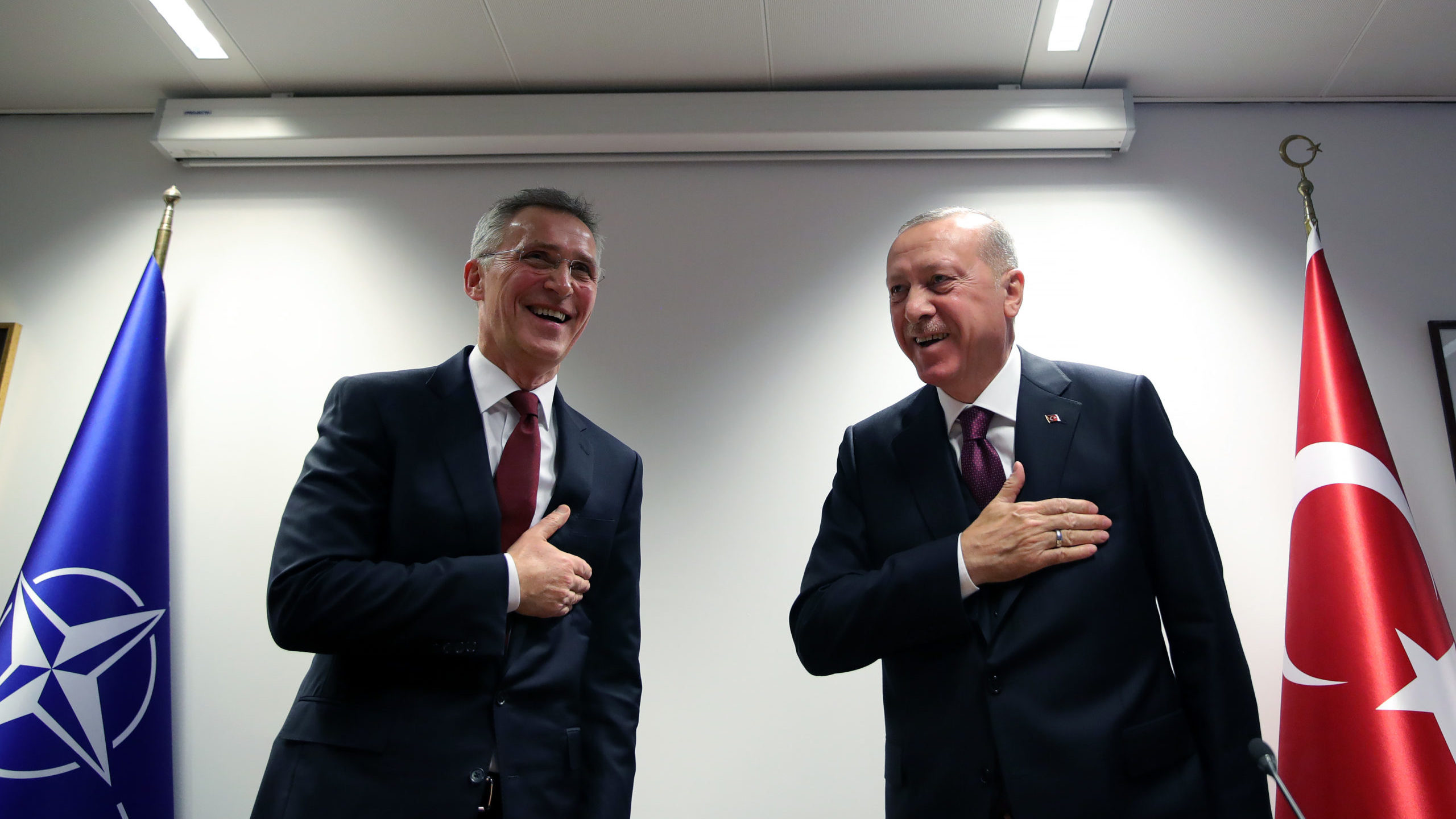Turkey Moves Closer to West but Strength of Future Ties Still in Doubt
Major obstacles remain between NATO and member state Turkey, which has boosted its ties with Russia for years
Russia’s war on Ukraine has pushed Turkey closer to its Western allies as the country attempts to strike a sensitive balance with Russia. But analysts tell The Media Line that a full thaw in Turkish relations with the West is still a long way off.
Turkey has held talks and had a slew of visits with high-level officials since the war began nearly a month ago.
On Wednesday, Turkish Foreign Minister Mevlut Cavusoglu visited Russian Foreign Minister Sergey Lavrov in Moscow and then discussed the meeting with US Secretary of State Antony Blinken later that day.
Turkish President Recep Tayyip Erdogan has for years strengthened his ties to Russian President Vladimir Putin, raising the ire of Ankara’s fellow NATO allies.
Analysts believe Erdogan was trying to decrease his country’s reliance on the West, especially after what he said was NATO’s lack of support after a failed coup attempt in Turkey in 2016.
In exchange, Erdogan increased ties with Russia, which is a major source of tourism, trade and energy for Turkey.
However, the two countries have historically been at odds with each other, as well as currently being on opposing sides in foreign battlefields, including Syria.
Russia also cannot replace the financial investment that Western countries had put into Turkey, something Erdogan is in dire need of a year before he faces national elections.
“This war is reinforcing Turkey’s traditional role as a check on Russian power in the Black Sea and in the Caucasus,” said Ryan Bohl, a Middle East and North Africa analyst with RANE/ Stratfor.
“They are certainly very important now and so I overall see an improvement in relations and a lot of burying of the hatchet in the near term,” he said.
Bohl added that there is a chance the warming of ties could be durable as long as NATO accepts that Turkey needs to maintain relations with Moscow.
“They’re willing to let the Turks try to be a mediator, try to bring about a cease-fire, because the other option is to alienate the Turks and push them into the Russian camp,” Bohl said.
This war is reinforcing Turkey’s traditional role as a check on Russian power in the Black Sea and in the Caucasus
Erdogan had continually urged talks in his country between Ukraine and Russia, which eventually happened when the Ukrainian and Russian foreign ministers met on March 10 on the sidelines of a diplomatic conference in the southern city of Antalya.
Turkey already has played an important role in the Russo-Ukraine war by enacting the Montreux Convention, which gives Ankara a special role in limiting access to the Black Sea during wartime.
Bohl warned that if the US decides to be stricter on sanctions, such as by expecting countries not to accept Russian gas or food imports, that would put Turkey in a much more difficult position and hamper progress with its Western allies.
Atilla Yesilada, an Istanbul-based analyst and economist, told The Media Line that the war has increased the mutual dependence of Turkey and the West, such as by making Turkey more reliant on foreign financing from Western banks and NATO reliant on Ankara closing the straits.
“It is quite clear that the West once again has recognized the importance of Turkey if it’s going to engage in a long-term conflict with countries like Russia,” he said.
However, Yesilada believes the Turkish president does not understand that he still must make policy changes to reap favorable, long-term impacts from the situation.
The biggest hurdle in relations is the anti-missile system Ankara purchased from Russia, the S-400, which led to Turkey’s ousting from the US F-35 fighter jet program.
Yesilada also warned that there is a risk that Turkey would not strictly follow the sanctions against Russia in light of previous allegations.
It is quite clear that the West once again has recognized the importance of Turkey if it’s going to engage in a long-term conflict with countries like Russia
A Turkish state-owned bank is currently facing charges in the US over accusations of evading sanctions against Iran, and one of its executives already has been found guilty of the charges.
Turkey’s human rights record is another a major source of frustration for the West.
One of the most high-profile examples is that of philanthropist and businessman Osman Kavala, who has been behind bars for more than four years despite a ruling from the European Court of Human Rights two years ago that he should be immediately be released, and a representative with the European Union stating that his detention is unlawful.
Meanwhile, Erdogan now faces an economy in steep decline, with inflation officially reported at nearly 55%, while his popularity is also dipping.
It is unlikely Russia will be the answer to the Turkish president’s financial problems, Bohl said.
“I think the election of next year does make Erdogan want to choose the West more,” he said. “There may be some kicking and screaming along the way.”


